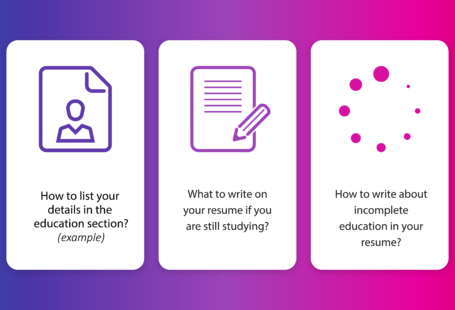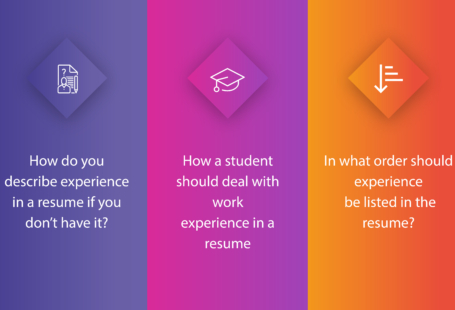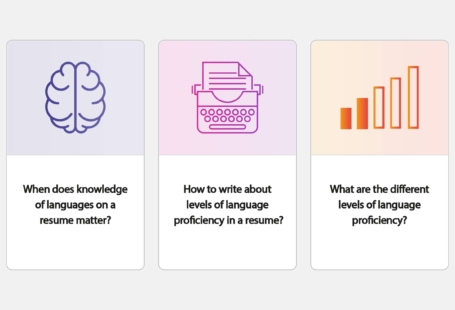Nervous laughter, cold sweats, weakness in the body and trembling hands. These are the feelings most job seekers experience before an interview. And the understanding that the recruiter will evaluate not only professional skills, but also knowledge of the English language, makes the heart beat twice as fast.
Even if, on the inside, you are experiencing maximum stress during the interview, you need to look like a confident, friendly professional.
In this article, you will learn:
- How to prepare for an interview
- How to answer the questions correctly
- Useful phrases in English
- Things not to do during an interview
What level of language do you need to successfully pass an interview?
Most employers use the popular CEFR standard to measure knowledge. The six English language reference levels are widely recognised as the global standard for measuring language proficiency.
Tip: Use CEFR standards in resumes (CV, Europass CV) and other English language assessment documents.
Here you will find detailed CEFR descriptors for the language proficiency level with the approximate equivalent of another global rating scheme – Cambridge ESOL. You can also assess your CEFR level.
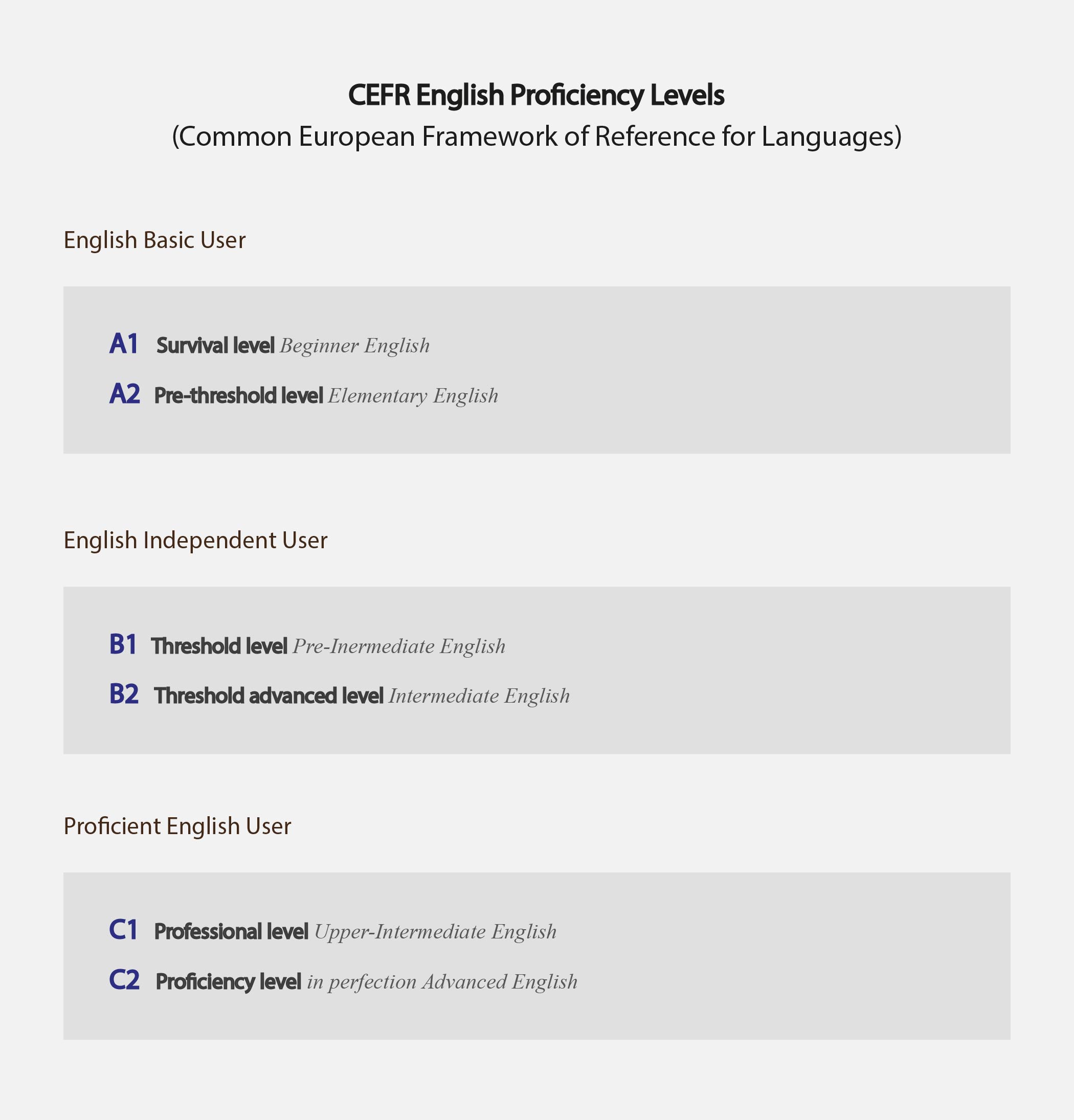
Base (A1, A2)
Someone at this level can introduce himself/herself, ask a question and provide some personal information about, for example, where s/he lives, people that s/he knows and things that s/he has. S/he can interact if the interlocutor speaks slowly, clearly and is ready to help.
An individual at this level can communicate in the context of tasks that require the direct exchange of information on familiar issues. S/he may describe in simple terms aspects of his/her origin, immediate surroundings and answer questions on certain topics where necessary.
Intermediate and advanced level (B1, B2)
Individuals at the intermediate or advanced level can create simple text on topics that are familiar or of personal interest. They can describe events and desires and briefly explain the reasons for changing opinions and plans.
Such individuals can provide a clear, detailed answer on a wide range of issues and explain their point of view on the actual problem, giving the advantages and disadvantages of different options.
Professional level (C1) and carrier level (C2)
At this level, an individual speaks fluently without searching for expressions. S/he can use the language flexibly and effectively for social, academic and professional purposes. S/he distinguishes between subtle shades of meaning even in difficult situations and can easily understands almost everything heard or read.
Certificates are needed in order to answer the question “What is your level of English?” The Grade Education Centre and the Cambridge Education Centre identify the following types of certificates.
Tip: use the list of free tests to practise all your English communication skills

How do you prepare for an interview? How do you interview in English
Talk to native speakers of English. Seek out friends who will help you hone your communication skills. The main task is to overcome the language barrier that makes you uncomfortable communicating in English even when everything in your head sounds perfect.
Improve your professional vocabulary. The source can be English-language resources, books, or interviews with industry representatives. If you are moving into a related field, pay special attention to the terminology that is used in it.
How to answer interview questions correctly? How to pass an interview in English
Make a list of questions in English the employer might ask you. Stick to a pre-prepared structure for answering questions instead of just memorising the text – an experienced HR person will definitely notice this.
Unusual questions, logical questions, tricky questions
Some of today’s hiring managers rely on rather unconventional questions because they believe killer questions can help unleash a job seeker’s potential and talents. It is unlikely that you will be asked to sell a ballpoint pen, but you may well encounter a tricky question. Here’s how to answer.
Tip: Try the interview simulator in our video. The consultant asks questions and expects your answers in English. Feel free to speak out loud.
During the interview
Remember the basics of any successful interview: be friendly and use polite words. Try to find a reason why this company should hire you. Stand out, focus on your strengths, turn weaknesses into advantages.
These are the most common mistakes:
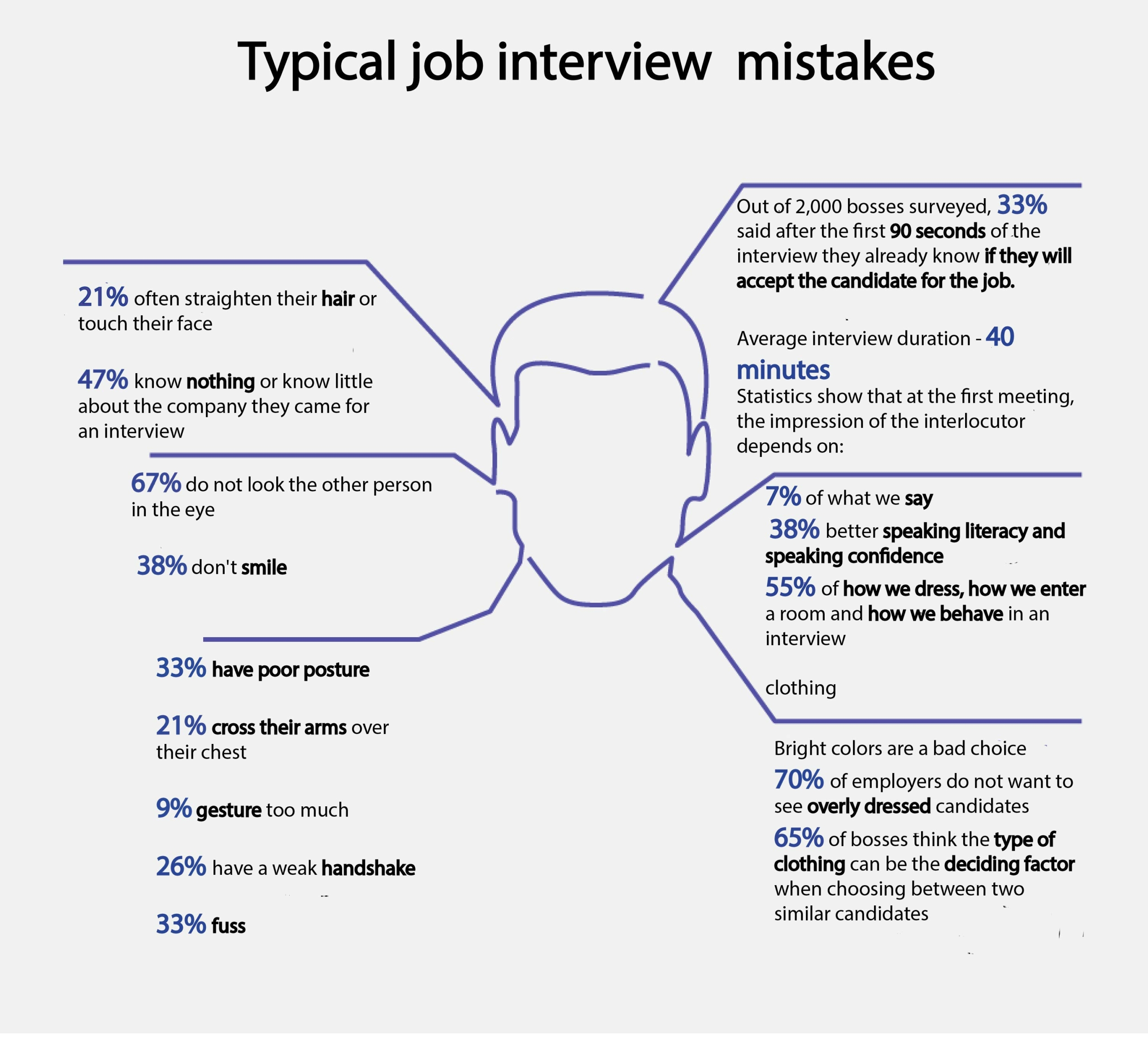
More tips on how to pass an interview in English
Networking is a critical part of the job search process and can help you land an interview in English. Attending industry events and conferences, connecting with professionals on LinkedIn, and joining professional organizations related to your field of work can help you gain visibility and establish valuable connections.
Prior to the interview, it’s important to practice the nuances of using temporary constructions, so your answers clearly reflect the time when you performed certain duties. For instance, using the Present Perfect Continuous tense indicates ongoing responsibilities, while the Past Simple tense suggests past tasks. Mastering these language nuances can help you communicate effectively during the interview and increase your chances of success.
Tip: If you forget a word, try to rephrase the thought. Do not strain at this moment, simply pause as lightly and gently as possible. You can smile or you can ask if you have understood the other person.
See also: How NOT to get an interview
Key questions in the English interview and examples of responses
Question | Example of answer |
Tell me about yourself | I’d describe myself as [your answer, for example, a goal-oriented and hardworking person] with Summary of experience and achievements I have over 6 years of experience in sales. Within my professional experience, I have been engaged in |
What are your strengths? | My strengths are… [ for example, excellent written and verbal communication skills]. |
What are your weaknesses? | I admit being [weakness] a bit of a perfectionist. |
Why should we hire you? | [Universal] My years of experience in this industry make me sure I can do this job and bring added value. I’ve gained a reputation as [a key player when it comes to negotiations]. I know this business from the ground up, and you can be assured that I know what I’d be getting into as a sales manager here. |
Why are you leaving (have left) your job? | This is individual, but here are a couple of examples: I relocated to this city due to family circumstances which is why I had to leave my previous position. |
Why do you want this job? | I look forward to a position that offers [information from the job description, for example] more opportunities to work with corporate clients. I want to be a part of this company because I believe I can be of assistance in its growth. |
What are your goals for the future? | I hope to become a senior manager and participate in shaping the strategic plans for development in B2B sales and marketing. |
Tell me about an accomplishment you are most proud of? | It is described according to the principle: problem – action – result. Problem: We had a problem with huge mess in inquiries from our branches. |
What are your salary expectations? | I’m sure that you’re offering a salary which is competitive in the market. According to my experience, I think that (specify your expectations) is a typical salary in the market. |
Do you have any questions? | How many employees work for the organisation? What are your plans regarding[company key product / service name] development and distribution? Have you thought about [product / service improvement suggestion]? Will I work independently or in a team? Who is going to be my supervisor (whom I report to)? |
Useful interview phrases in English.
This can be divided into three stages:
1. Phrases for an opening speech
Elevator pitch (presentation in an elevator) is a term from the USA that arose during the boom of startup projects on the internet. The idea is to talk about yourself so succinctly and persuasively that you interest the investor even while travelling in the elevator. Use this technique in your interview!
Tip: According to a survey of 2,000 managers, 33% decide to hire a candidate in the first 90 seconds of communication. During this time, it is necessary to introduce yourself and formulate all the benefits and advantages that the company will receive from cooperation with you.
For example:
Susan McCarthy. Brand manager of successful projects. Helping businesses and experts grow through persuasive texts selling presentations and public speaking.
Andy Peters. Architect of IT projects: build and repair, customise IT processes.
Maria Foster.Visual Strategist. I help brands and experts grow and attract an ideal target audience.
Alexander Russell. Crisis Manager. I help businesses see the causes of problems and solve them.
2. Phrases to describe your work experience
The main secret to successful storytelling is the professional accomplishments you have. For example, you can say:
- Dramatically increased revenues and grew client base between 2015 and 2020.
- Reduced the turnover of sales personnel by 80% for 3 years due to the implementation of grading projects.
- Сlosed 1,000 vacancies in 3 months due to the implementation of the new mass recruitment system.
3. Phrases in English to describe your skills
As you prepare for your interview in English, choose skills that fit the job requirements, or that can give you an advantage over other candidates for the job.
For example:
1. knowledge of foreign languages (indicate the name of the language and level of proficiency);
2. knowledge of programming languages (language name and level of proficiency);
3. skills to create, develop and maintain a customer base.;
4. How to talk about yourself and your career plans?
To correctly describe yourself, try to answer these questions:
- Where do you see yourself in the future?
- Do you have any long term/short term plans?
- What would be your ideal job?
Successful interview in English
How to get a job interview in English on Skype: practice your English language skills, remember the times, learn vocabulary and special terms.
In the course of preparation, it is recommended that you draw up a list of questions. For help with this, read the article “Frequently Asked Questions at Interview”.
Even a weak level of English can be disguised by a combination of well-practised frequent phrases and high-quality non-verbal language: voice, posture, smile.
In the CV2you resume template, you have the opportunity to compose your resume in any of 4 languages, including English.
And of course, do not forget about a competent resume structure. Our complete guide will help you with this.


